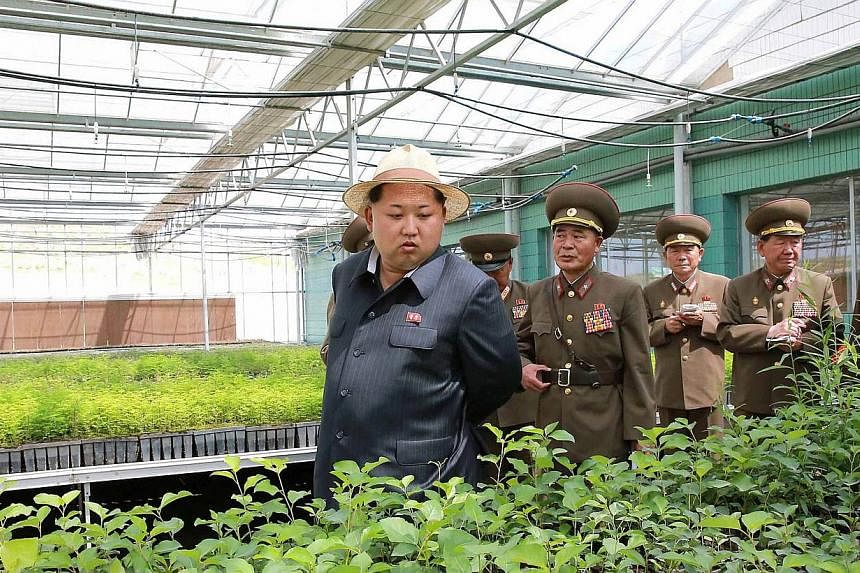SEOUL (Reuters) - North Korea has updated farming methods and switched crops that could help soften the blow of drought and avert a disastrous food shortage, an aid worker and an analyst said on Sunday, after a United Nations official warned of another "huge food deficit".
Impoverished North Korea, which suffered a deadly famine in the 1990s, has seen international food aid fall sharply because of its restrictions on humanitarian workers and reluctance to allow monitoring of food distribution.
Food supplies had since improved and production has been at the highest levels, resulting in the lowest shortfall last year since the mid-2000s, according to independent South Korean studies. "Supply this year will be even more stable and any shortfall is likely to be met sufficiently by imports," said Mr Kwon Tae Jin of the GSnJ Institute in Seoul, an expert on North Korean agriculture.
"Improvement in the supply of food isn't likely by chance or a temporary situation," he said, crediting an increased allocation of resources in agriculture.
Ms Linda Lewis, of the American Friends Service Committee, a non-governmental organisation running farm projects in North Korea, said she had heard the new farm management system was helping. "The production was okay last year, despite the drought, and there are more coping mechanisms in place this year," she said.
North Korea now allows smaller groups of farmers to keep a greater share of their crops, which they are allowed to sell in markets, which in turn improved distribution.
The optimistic outlook follows a warning by the top UN official in North Korea of a looming crisis due to last year's drought, caused by the lowest rainfall in 30 years.
"It is going to create a huge deficit between the needs and what is available," UN resident coordinator for North Korea Ghulam Isaczai said.
North Korean state media last week highlighted the push to step up rice production with "a scientific farming method including the water-saving farming method", KCNA news agency said. It did not elaborate.
Kwon said part of the success had been in diversifying crops, with wheat, barley and potatoes planted after the fall rice harvest.
Mr Isaczai said farmers had no choice but to diversify, because it was too dry to plant rice.
Mr Daniel Pinkston of the International Crisis Group told Reuters in Singapore that the North was "living on the edge".
"They might have had four, five decent years of decent output but you need only one disaster, one flood or one El Nino pattern that could have a negative impact," he said.

